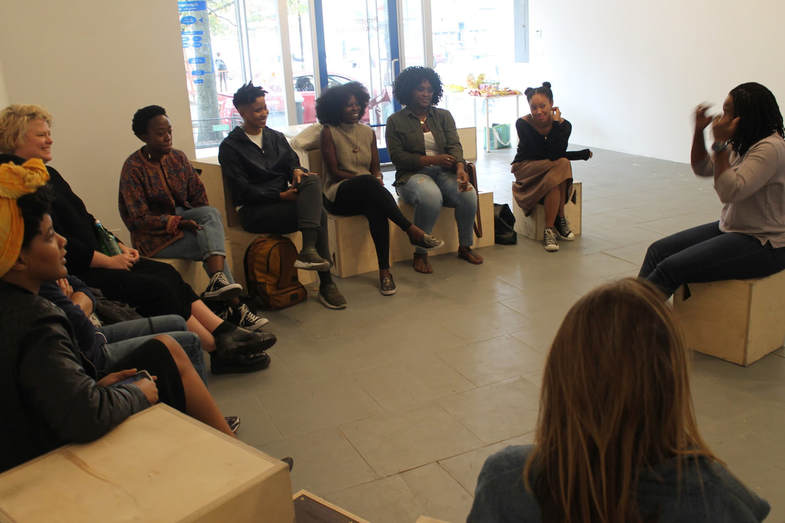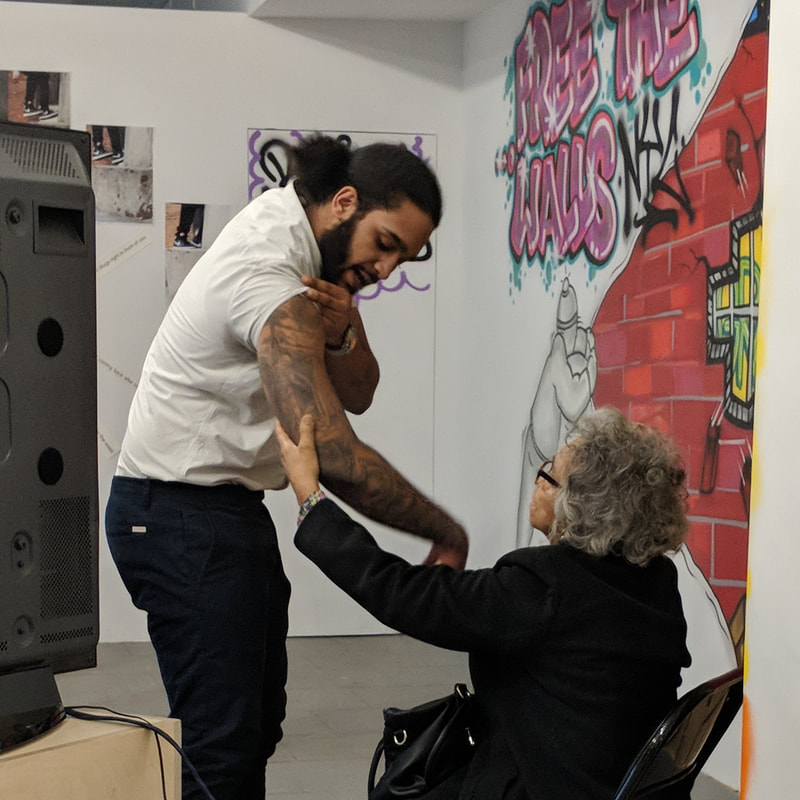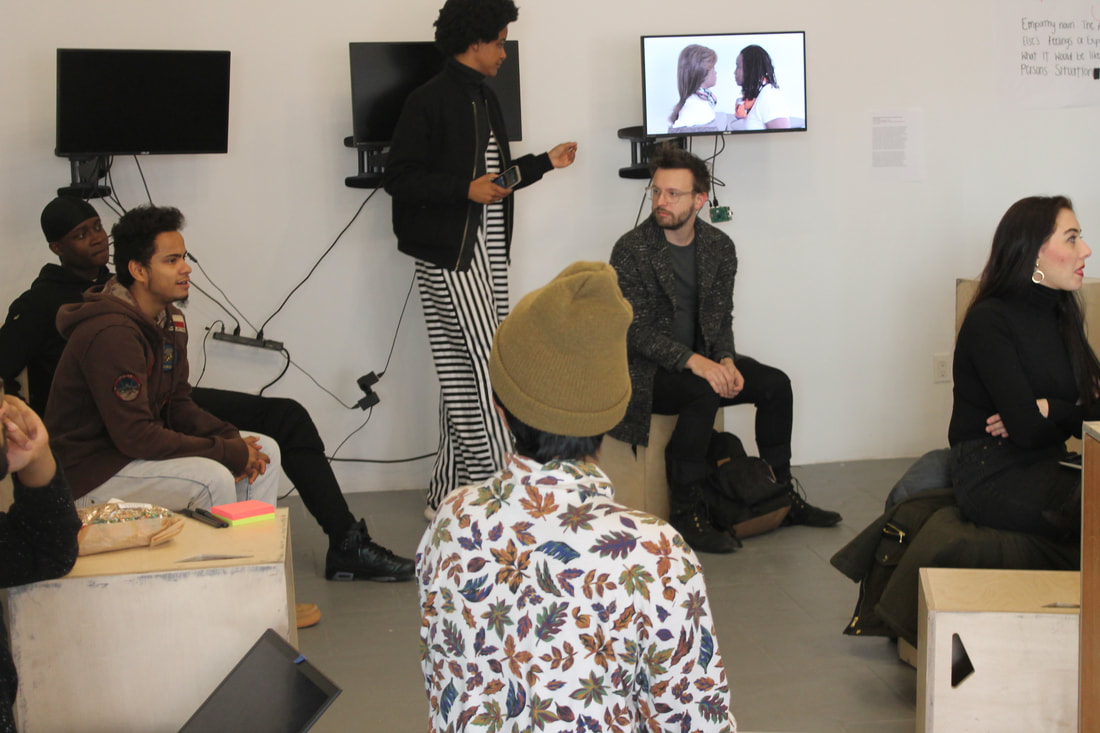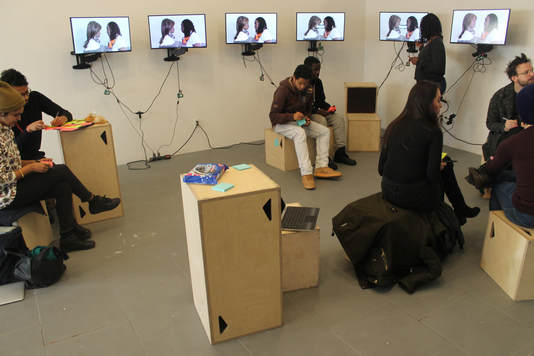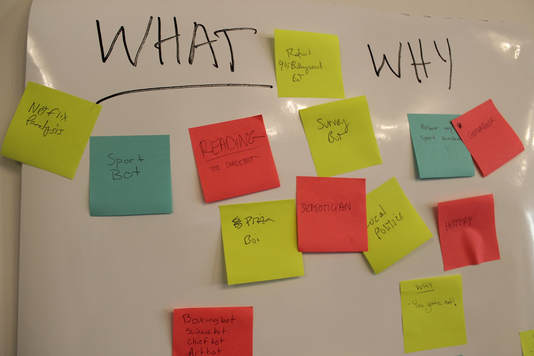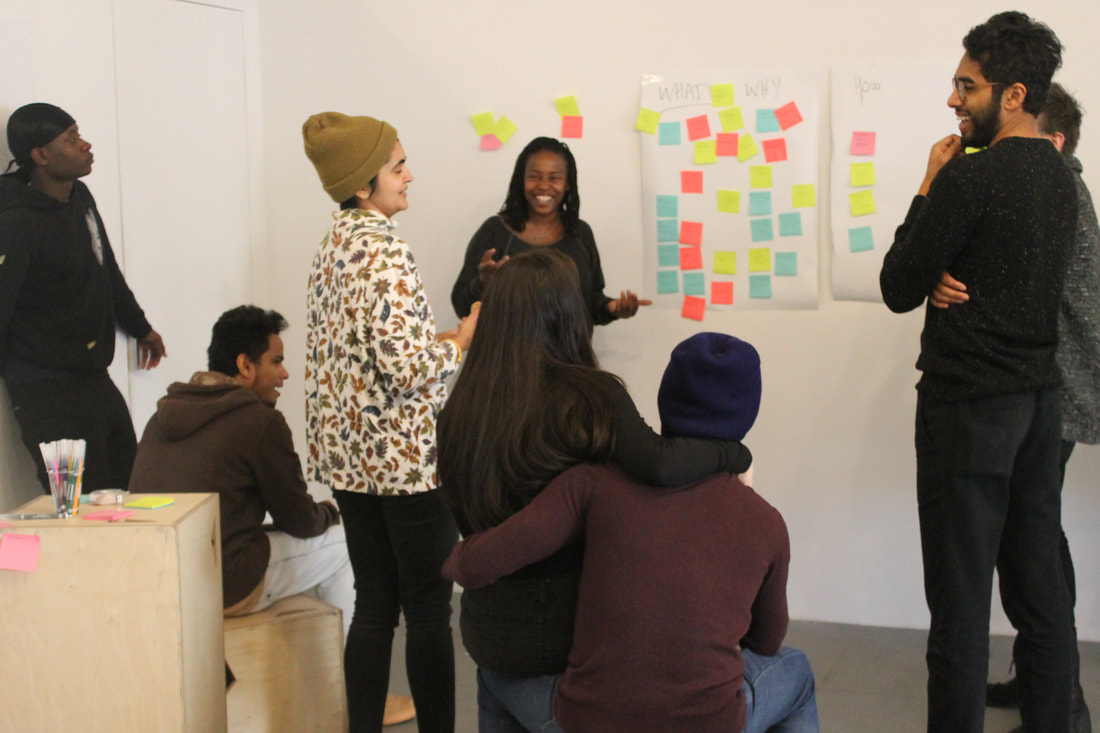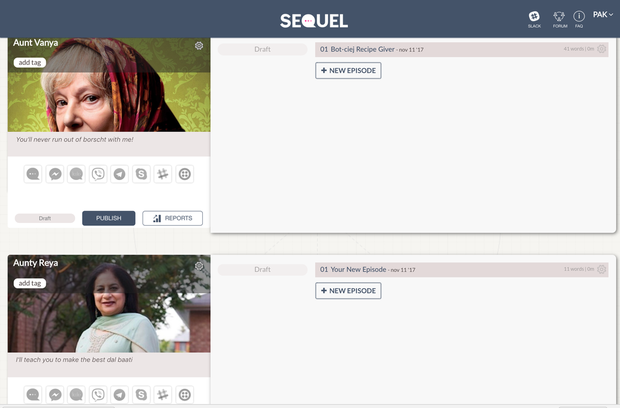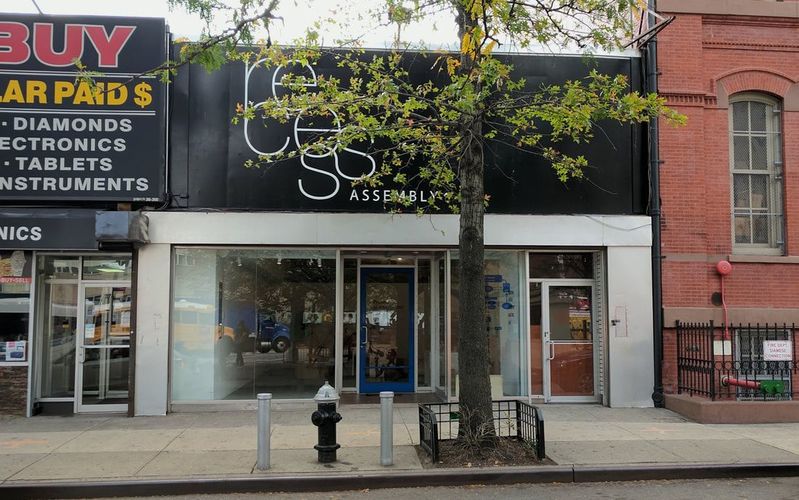
Project al-Khwarizmi (PAK)
uses art and aesthetics as the common language to help citizens, particularly communities of color conceptually understand what algorithms and artificial intelligent systems are as well as how and where these systems intersect their lives. Everyone who uses computers has applied for credit or job, etc. has encountered subject to algorithmic systems in ways they may or may not be aware of and have a stake in how artificial intelligence (AI) is designed, developed, trained, tested, and proliferated. Participants combine this new information with knowledge(s) they already possess to collaboratively design conceptual algorithms for combating and/or interrupting biased artificially intelligent systems. When intervention is not possible, methods of preempting biases built into algorithmic systems to support, rather than hinder, communities of color are explored.
uses art and aesthetics as the common language to help citizens, particularly communities of color conceptually understand what algorithms and artificial intelligent systems are as well as how and where these systems intersect their lives. Everyone who uses computers has applied for credit or job, etc. has encountered subject to algorithmic systems in ways they may or may not be aware of and have a stake in how artificial intelligence (AI) is designed, developed, trained, tested, and proliferated. Participants combine this new information with knowledge(s) they already possess to collaboratively design conceptual algorithms for combating and/or interrupting biased artificially intelligent systems. When intervention is not possible, methods of preempting biases built into algorithmic systems to support, rather than hinder, communities of color are explored.
PAK POP UP at Recess Assembly functioned as a gathering place and catalyst for discussion about artificial intelligence and algorithms as they relate to communities of color.
A drop in visitor schools us on AI |
Code of dance prelude to algorithms.
|
Project al-Khwarizmi (PAK) is generously supported by:
NEW INC
A BLADE OF GRASS
RECESS ART
STONY BROOK UNIVERSITY
